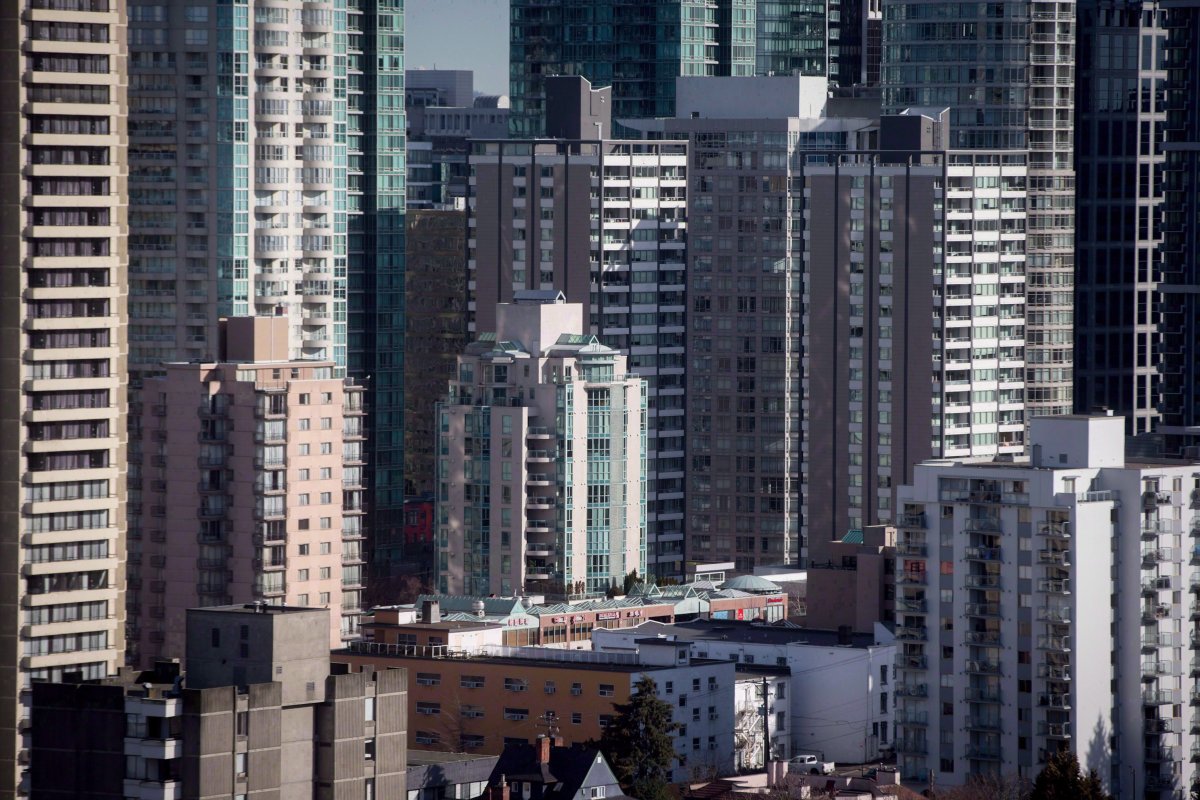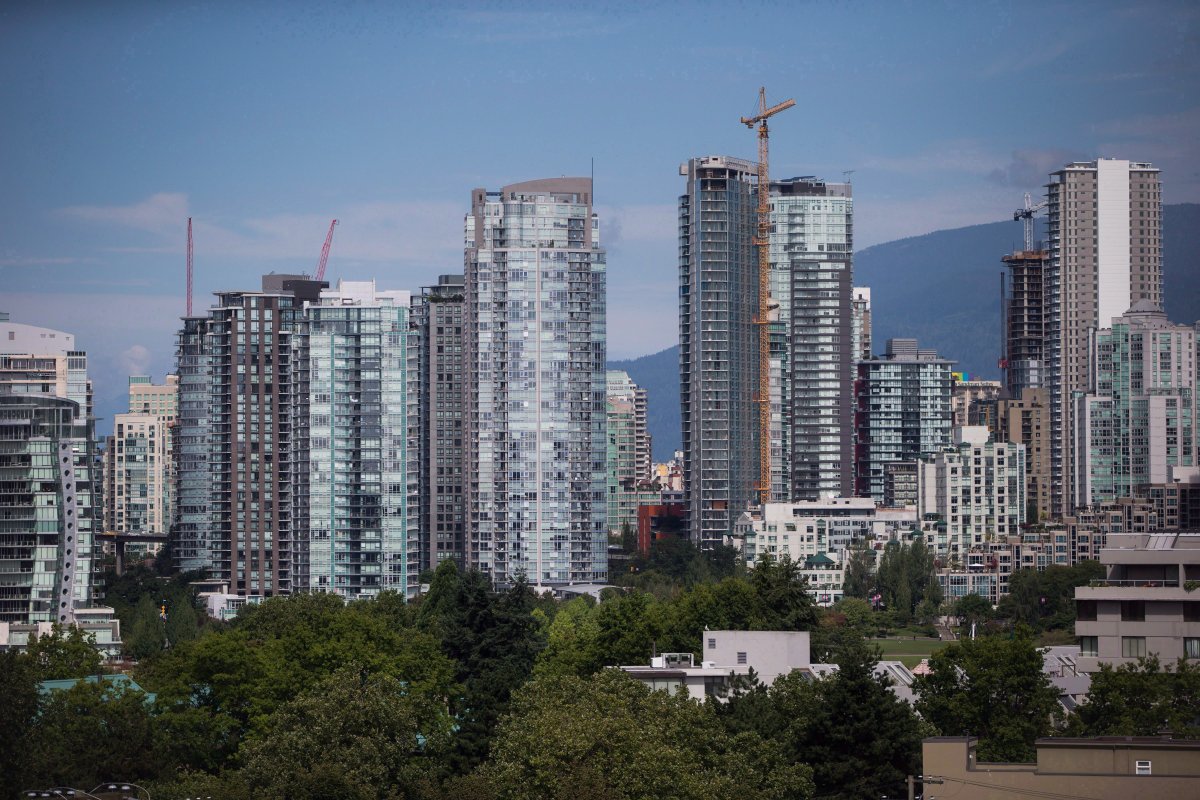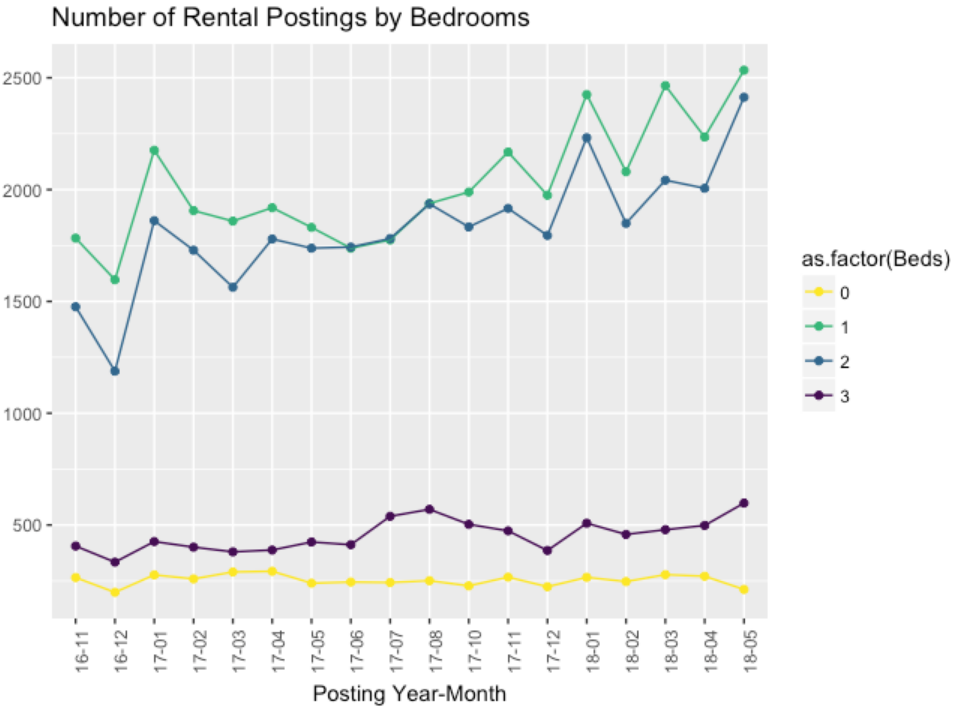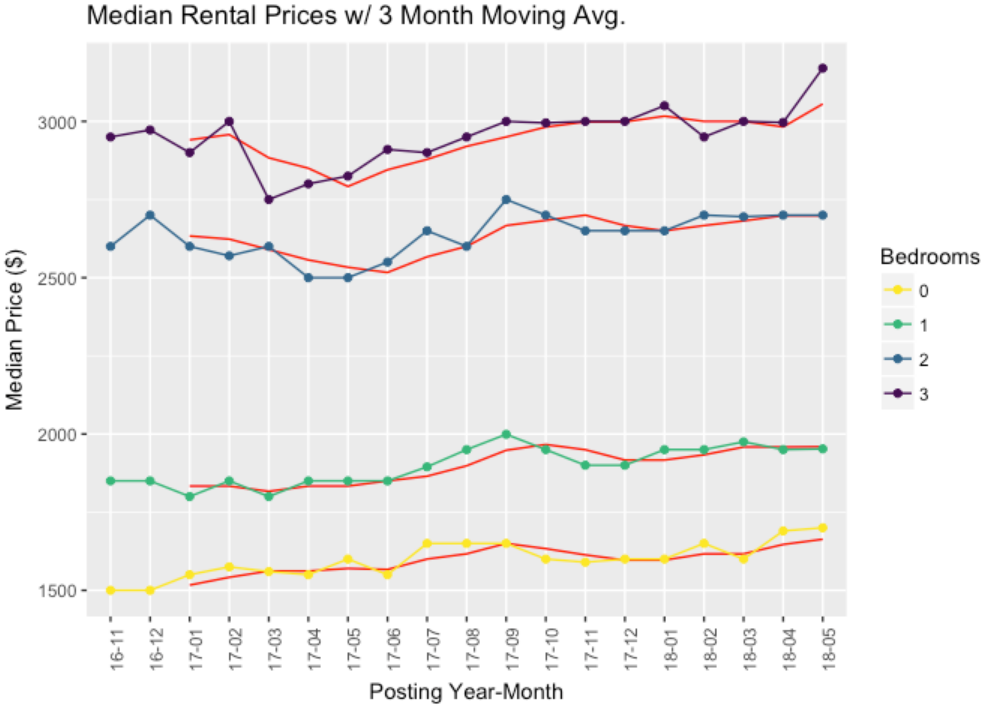The cost to rent a unit across Vancouver hasn’t exactly dropped, but it hasn’t grown much over the past three months, either.

That’s according to Louie Dinh, a data analyst at Quantitative Rhetoric, a blog that tracks rental listings and rates every month.
Coverage of Vancouver rentals on Globalnews.ca:
His latest report shows that rent prices have “flatlined since March” for most types.
The median rental rate for a two-bedroom unit was $2,800 in May, representing no change from the month before.
Meanwhile, the median rate for a studio was $1,700, up 0.59 per cent month-over-month, and it was $1,952 for one-bedroom units, which were up 0.13 per cent from the previous month.
The only noticetable growth was in three-bedroom units, which sat at $3,170 in May, up 5.8 per cent from the month prior.
One of the big reasons for this is “strong volume growth,” Dinh said.
The city saw rental listings grow by 15 per cent between April and May, with much of the growth happening in one- and two-bedroom units.
Growth among studios and three-bedroom units wasn’t as strong.
The cost to rent also grew year-over-year, but amounts varied by housing type.
The median rent for a two-bedroom grew by eight per cent, while for a one-bedroom it grew by 5.5 per cent, and for a studio by 6.3 per cent.
The cost to rent a three-bedroom unit grew by 12.2 per cent, more than any other type.
READ MORE: Buying vs. renting in Vancouver — moneywise, it doesn’t make much difference: analysis
Rental volumes are growing year-over-year, too.
The city saw volume growth of 13 per cent for the first half of the month — Dinh could only look at this period due to a change in his methodology.
The trends came amid a bevy of changes at the municipal and provincial levels.
In the City of Vancouver, the empty homes tax came into effect earlier this year, and in March, Dinh said he was “cautiously optimistic” that measures such as the tax were “driving more rental stock.”
Other changes have come into effect since then. Last month, the B.C. government changed the Residential Tenancy Act to make landlords give four months’ notice for a legal eviction to end tenancy for demolition, renovation or repair, or conversion, and tenants have 30 days to dispute the notice. This is up from two months.
Landlords also have to give renters 12 months of compensatory rent if they end a tenancy under section 49 of the act. This would apply if it is discovered the stated purpose for ending the tenancy has not been accomplished or the rental unit is not used for the stated purpose for at least six months beginning “within a reasonable period after the effective date of the notice.”
Then, there was Bill 25 — legislation that requires developers to record assignments and notify the government about them.
READ MORE: Potential tenants asked to fill out a personality test for Vancouver building
There are likely two sides to the trends: increasing supply and lowered demand, Dinh told Global News in an email.
“Supply is increasing because availability of rentals is inversely related to speculation,” he said.
“Now that speculation is cooling down and sales are cratering, someone is left holding the bag and has to rent it out to generate at least some cashflow.”
Dinh said there was definitely speculation because of pre-sale assignment flips; “the number of condos bought and sold within a short period was also unusually high,” he added.
Now, several buildings are being completed at the same time as these new rules have come into place.
“Both of these factors are causing rental volumes to surge,” he said. “That will dampen price increases.”
READ MORE: New record — $2,090 a month is average cost of one-bedroom rental in Vancouver
Dinh said it’s also possible that Vancouver is hitting “some sort of price ceiling.”
“Rents are much more tightly coupled to local wages than purchase price because it’s actually being paid by people who work in the area,” he said.
“We know that Vancouver has a median wage of something like $72,000 per year. At the ‘affordability limit’ of 33 per cent of income, this works out to $1,980 per month.
“Landlords probably can’t push rents much higher, because locals are already at their limit.”












Comments